Alberta
Canada’s Premiers beginning to back Canadian energy
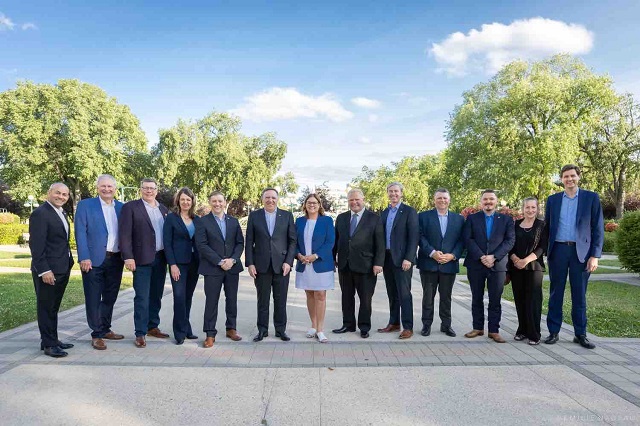
News release from Project Confederation
Alberta Premier Danielle Smith was on a mission last week and had three things on her mind: energy, energy, energy.
The interesting thing is, many of the other provinces now seem to be on the same page too.
Energy is a policy area that has always been a flashpoint for trouble for the federal government and we’ve seen an ever-increasing number of disputes developing in recent years, deteriorating interprovincial relations and creating constitutional struggles.
The most recent argument started last Friday when Premier Smith met with Prime Minister Justin Trudeau in Calgary to talk about – you guessed it! – energy policy.
Trudeau has announced several ambitious climate policies that will drive energy costs up.
These include aggressive net-zero emissions electricity targets that are going to make power at least 40% more expensive, cost $52 billion for infrastructure alone, and another $35 billion in economic activity.
They’ve also announced an emissions cap on the oil and gas sector in western Canada – which is effectively a production cap, limiting the ability of producers to up their production in order to meet rising global demand.
Smith isn’t going along with these destructive policies.
Natural resource development is the sole jurisdiction of the provinces, not the federal government, and Smith says that Alberta will not be a doormat for federal climate policies that are going to decimate its economy.
She made it clear she will do whatever is necessary to protect Alberta’s interests.
After this bout with Trudeau, she headed out to Winnipeg for the 2023 Summer Meeting of Canada’s Premiers.
Once again, Smith hammered on Ottawa’s aggressive targets and the impact they will have on the economies of the federation – not just Alberta.
Next, she headed to the LNG2023 Conference in Vancouver, looking to establish new export markets for Alberta’s Liquefied Natural Gas (LNG) – a major source of tension between the federal government and the provinces.
Smith pointed out that Western Canada wants the ability to export LNG to fulfill rising global demand, a resource that Canada has in abundance:
“With the right infrastructure in place, Western Canada would become a sought-after supplier for both Asia and Europe.”
Notably, federal Natural Resources Minister Jonathan Wilkinson didn’t even show up to the conference, instead sending Tourism Minister Randy Boissonnault.
Perhaps most importantly though, Alberta no longer stands alone.
The federal government has intruded so much into provincial jurisdiction on so many issues, that more and more provinces are pushing back.
At the start of her trip, Smith predicted that she would have a few allies.
“I can tell you the thing that has surprised me the most is that it doesn’t matter what political stripe the premiers have, every single one of them is frustrated with federal interference into their business,” she said.
She was right.
The Council of Premiers made it clear that they weren’t happy being force-fed aggressive deadlines that were going to decimate the Canadian economy.
Scott Moe, Premier of Saskatchewan, publicly called out the Prime Minister and Steven Guilbeault, federal Minister of Environment and Climate Change, tweeting:
“If it wasn’t clear before, it is now. The Trudeau government doesn’t want to just reduce emissions in our energy sector, they want to completely shut down our energy sector.”
Blaine Higgs, the Premier of New Brunswick added:
“It just seems to be a pile-on of additional costs, Let’s get some recognition for the impact this is having on everyday lives.”
Even David Eby’s NDP government in British Columbia is joining in and are looking at ways to grow LNG exports with the recent establishment of a task force with a mandate to explore export expansion opportunities.
If there is one thing that this past week and a half did demonstrate is that when it comes to energy, the provinces have never been more united against a federal government that continues to overstep its jurisdictional boundaries.
This level of agreement amongst premiers is a major step forward, and it demonstrates that common ground can be found between provinces when it comes to federal overreach.
It is also important because it demonstrates that the rest of the country is getting fed up with the never-ending climate brigade taking shot after shot after shot at the energy industry without addressing the impact energy has on affordability.
Some time ago, we launched a campaign to Stand Up for Alberta Energy.
If you agree with our work in this area, and want to get more involved with the campaign, please join the campaign here:
Alberta
Click here to help choose Alberta’s new licence plate design

Your province, your plate
For the first time in more than 40 years, Alberta is refreshing its licence plate with a Strong and Free motto, and the final look will be decided by Albertans.
From Oct. 15 until Nov. 5, Albertans can take part in a tournament-style online vote for a new provincial licence plate design that proudly reflects who we are every time we hit the road.
The new licence plate will be available in late 2026 and will be based on a “Strong and Free” theme, echoing the Latin motto of our province and reflecting Alberta’s bold identity, economic strength and deep-rooted provincial pride. The motto’s inclusion on the licence plates will also serve as a nod to Canada’s national anthem and Alberta’s position as a strong and sovereign province within a united Canada.
“From our wide-open landscapes to our entrepreneurial spirit, Alberta has so much to be proud of, and our new licence plate will reflect that pride. For the first time in four decades, Albertans will choose how we tell that story. I look forward to seeing which design is selected to show the world that this is the land of the strong and free.”
With options that include famous Alberta landmarks such as the Three Sisters Mountains, and long-standing symbols of our province’s core industries including agriculture and energy production, the potential plates each contain symbols of Alberta’s beauty, history and spirit.
In the first phase of voting, Albertans can vote for their favourite of eight unique concepts that incorporate Alberta’s unique landscape and history. Following the first phase, four designs will advance to the next round of voting where the top two will be selected, and subsequently, there will be a final vote for the winning plate concept. The winning new licence plate will be announced during the fall session of the legislature.
“Alberta is strong and free, and Albertans will have the opportunity to choose a new licence plate that captures that spirit. The new licence plate will be a fresh design that every Albertan will be proud to show off, whether they’re driving to work, heading to the lake or exploring North America.”
If an Albertan wants to replace their current plate for the new licence plate once it is released, they can voluntarily pay a $28 fee. Alternatively, Albertans could obtain a new plate on their vehicle registration renewal date at no additional cost. Motorists may also continue using the previous licence plate once the new licence plate is brought onboard, provided it is still in good condition.
Quick facts
- Alberta’s current licence plate was designed in 1984.
- In 2021, Alberta began a transition from painted to reflective plates with the same design.
- The new designs each incorporate reflective technology to improve readability for law enforcement and automated systems in low-light conditions, and also meet international standards for visibility, legibility and counterfeit resistance.
Related information
Licence plate designs. Click link above to vote
Alberta
Enbridge CEO says ‘there’s a good reason’ for Alberta to champion new oil pipeline

Enbridge CEO Greg Ebel. The company’s extensive pipeline network transports about 30 per cent of the oil produced in North America and nearly 20 per cent of the natural gas consumed in the United States. Photo courtesy Enbridge
From the Canadian Energy Centre
B.C. tanker ban an example of federal rules that have to change
The CEO of North America’s largest pipeline operator says Alberta’s move to champion a new oil pipeline to B.C.’s north coast makes sense.
“There’s a good reason the Alberta government has become proponent of a pipeline to the north coast of B.C.,” Enbridge CEO Greg Ebel told the Empire Club of Canada in Toronto the day after Alberta’s announcement.
“The previous [federal] government’s tanker ban effectively makes that export pipeline illegal. No company would build a pipeline to nowhere.”
It’s a big lost opportunity. With short shipping times to Asia, where oil demand is growing, ports on B.C.’s north coast offer a strong business case for Canadian exports. But only if tankers are allowed.
A new pipeline could generate economic benefits across Canada and, under Alberta’s plan, drive economic reconciliation with Indigenous communities.
Ebel said the tanker ban is an example of how policies have to change to allow Canada to maximize its economic potential.
Repealing the legislation is at the top of the list of needed changes Ebel and 94 other energy CEOs sent in a letter to Prime Minister Mark Carney in mid-September.
The federal government’s commitment to the tanker ban under former Prime Minister Justin Trudeau was a key factor in the cancellation of Enbridge’s Northern Gateway pipeline.
That project was originally targeted to go into service around 2016, with capacity to ship 525,000 barrels per day of Canadian oil to Asia.
“We have tried to build nation-building pipelines, and we have the scars to prove it. Five hundred million scars, to be quite honest,” Ebel said, referencing investment the company and its shareholders made advancing the project.
“Those are pensioners and retail investors and employees that took on that risk, and it was difficult,” he said.
For an industry proponent to step up to lead a new Canadian oil export pipeline, it would likely require “overwhelming government support and regulatory overhaul,” BMO Capital Markets said earlier this year.
Energy companies want to build in Canada, Ebel said.
“The energy sector is ready to invest, ready to partner, partner with Indigenous nations and deliver for the country,” he said.
“None of us is calling for weaker environmental oversight. Instead, we are urging government to adopt smarter, clearer, faster processes so that we can attract investment, take risks and build for tomorrow.”
This is the time for Canadians “to remind ourselves we should be the best at this,” Ebel said.
“We should lead the way and show the world how it’s done: wisely, responsibly, efficiently and effectively.”
With input from a technical advisory group that includes pipeline leaders and Indigenous relations experts, Alberta will undertake pre-feasibility work to identify the pipeline’s potential route and size, estimate costs, and begin early Indigenous engagement and partnership efforts.
The province aims to submit an application to the Federal Major Projects Office by spring 2026.
-
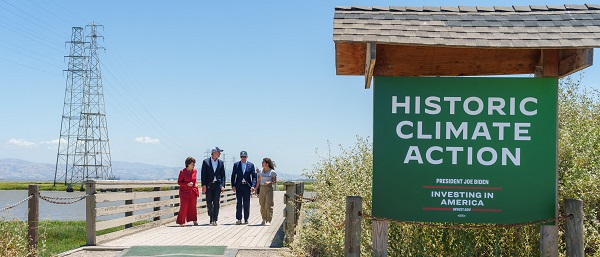
 Daily Caller2 days ago
Daily Caller2 days agoUtah Republican Senator Planning To Attend Big Globalist Climate Shindig Despite Trump’s Energy Policies
-

 International1 day ago
International1 day agoNumber of young people identifying as ‘transgender’ declines sharply: report
-

 Energy1 day ago
Energy1 day agoIndigenous Communities Support Pipelines, Why No One Talks About That
-

 Alberta4 hours ago
Alberta4 hours agoClick here to help choose Alberta’s new licence plate design
-
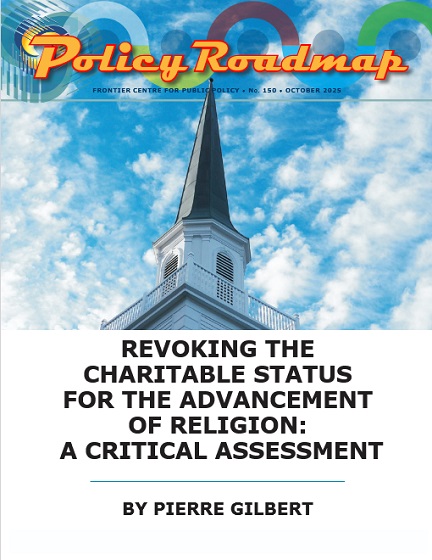
 Business1 day ago
Business1 day agoFinance Committee Recommendation To Revoke Charitable Status For Religion Short Sighted And Destructive
-
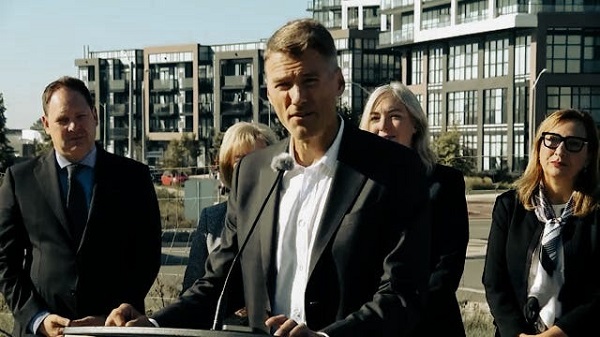
 Business1 day ago
Business1 day ago“Nation Building,” Liberal Style: We’re Fixing a Sewer, You’re Welcome, Canada
-

 Bruce Dowbiggin1 day ago
Bruce Dowbiggin1 day agoLong-Distance Field Goals Have Flipped The Field. Will The NFL Panic?
-
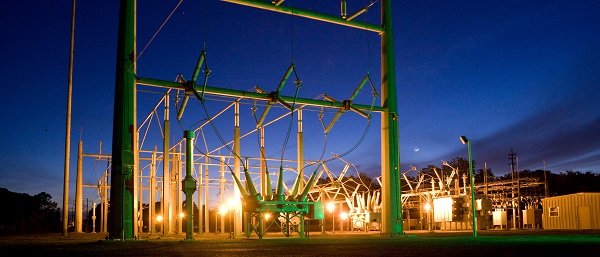
 Business2 days ago
Business2 days agoFinance Titans May Have Found Trojan Horse For ‘Climate Mandates’


